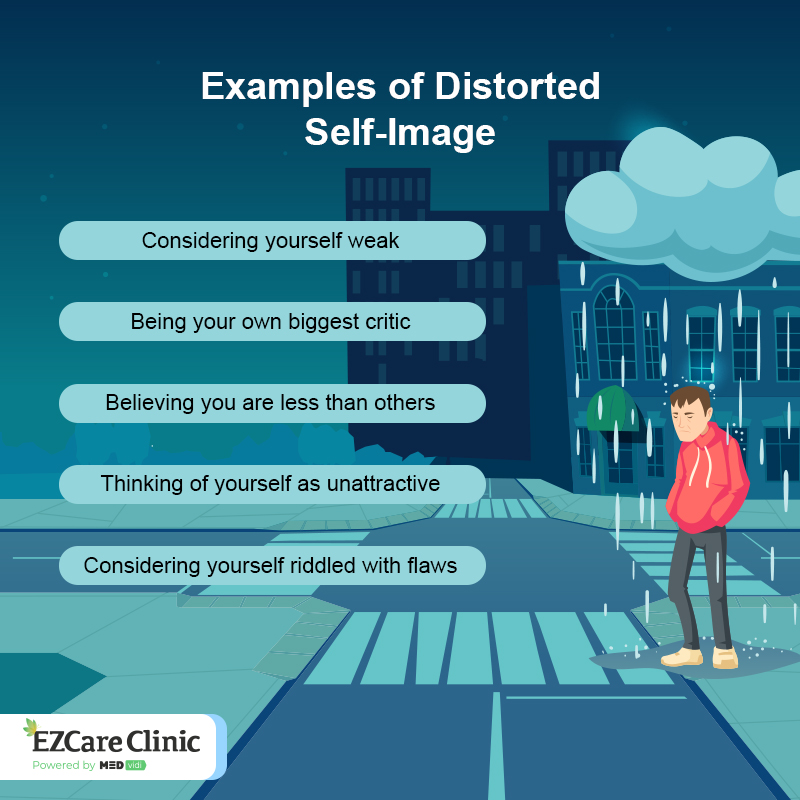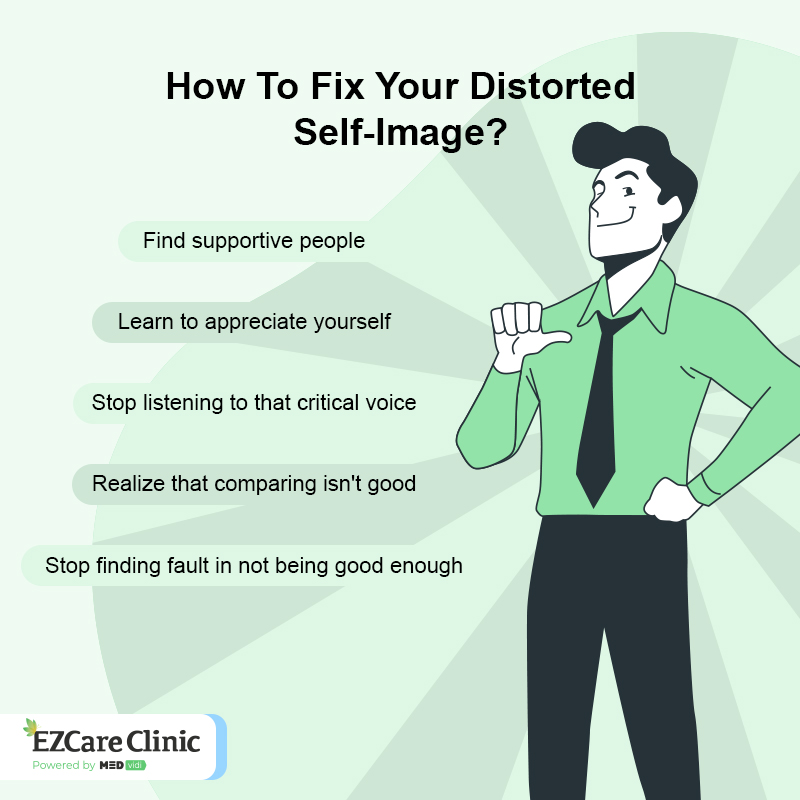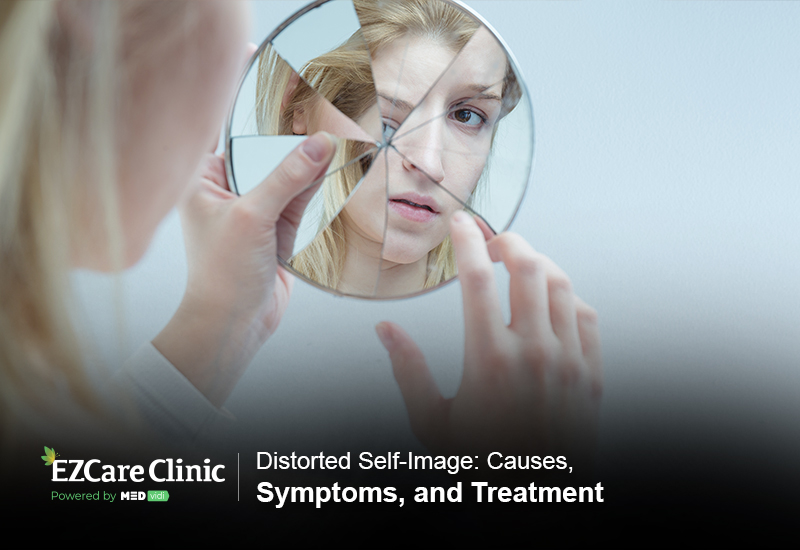Broadly speaking, self-image is the way a person sees themselves. However, there are more dimensions of self-image.
There are in fact, four aspects of self-image:
- How a person sees themselves
- How a person is seen by others
- How a person believes they are perceived by others
- How a person believes they see themselves
Effective mental health treatment can be very helpful for people struggling with a distorted self-image- Click below to schedule your appointment.
When The Image Is Distorted: Distorted Self-Image
When you have a self-image that is distorted, the way you see yourself is a distortion of how you actually look.
This may be in regard to how a person sees themselves in terms of their abilities, talents, set of values, and other traits. It also has to do with how a person sees their body.
This is the aspect of self-image that is most commonly distorted. This disorder is known as
Disorder self-image causes a lot of emotional distress which may manifest in the form of:
- Anxiety
- Self-consciousness
- Extreme shyness
- Sadness
- Depression
It also causes a person to spend a lot of time looking at or thinking about how they look.
It is also not uncommon for people with BDD to have compulsive behavior like always looking in the mirror, trying to fix themselves up, or comparing themselves to others.
Symptoms of Distorted Body Image
Other symptoms of a distorted self-image about one’s body are:
- Keeping away from the mirror to avoid seeing the whole body or the part of the body that is seen to look unattractive.
- Trying to cover up the whole body such as with baggy clothes or with accessories like hats and caps to hide specific body parts.
- Constantly asking others how you look.
- Going to extremes to change how the body or a specific part looks such as with excessive makeup or frequent surgical procedures or cosmetic treatments.
- Constant fussing about grooming or style.
- Avoiding social interaction because a person believes they look terrible and are feeling very self-conscious.
- Feeling ashamed is often accompanied by feeling depressed which may lead to self-harming and even thoughts of suicide.

Still Hard to Tell
Despite the symptoms above, many people who have a distorted self-image keep it hidden very well.
They keep how they feel about themselves secret because they believe that they look so bad they don’t want to attract attention to it.
They also keep how they feel hidden because they believe that others find them just as unattractive.
Unhappy With Your Body or BDD?
Most people have at least one part of their body that they would like to change.
The difference between this and BDD is that such a person does not obsess about this part they’d like to change, feel ashamed or disgusted by it or constantly try to hide or change it.
Mental health therapies help reduce the symptoms of BDD- Click below to schedule your appointment.
Another difference is that if a person feels really strongly about their body or part of it, it is justifiable.
Also, the feeling will be a response or reaction to something happening rather than a long-term feeling.
For instance, it could be scars that are left after an accident, putting on weight as a side effect of prescribed medication, or being unable to exercise after suffering an injury.
Causes of BDD
According to the National Center for Biotechnical Information (NCBI), a number of
- Body Mass Index (BMI)
Even if they are not obese, a person with a BMI that is out of the healthy range may believe that they are grossly overweight.
Those who are on the lower side of the scale may believe they are too skinny and BDD can develop from these perceptions.

- Family
Growing up in a household where a child is constantly hearing critical or judgmental comments about their body can predispose them to develop a poor bad image.
Pushing them to stick to a diet or comparing them with others can have the same effect.
- Society
The same can happen outside the family. A person can form a negative opinion of their body because of what they see and hear.
This can be from friends or other places like movies, magazines, social media, and music videos where a certain look that celebrities have is held up as the standard or desired look. Being bullied can have the same effect.
- Other Mental or Physical Disorders
Mental disorders like anxiety and depression cause feelings of:
- Low self-esteem
- Lethargy
- Wanting to isolate oneself
These symptoms can cause a twisted image of oneself along with deep unhappiness or dissatisfaction about one’s life.
Physical problems such as obesity, having an odd feature on the body or a noticeable feature like a limp can have the same effect.
CBT is one of the most common treatments of BDD– Click below to get the most suitable treatment.
Getting Over BDD
Just like other mental disorders, it is important to get a correct diagnosis from a licensed, certified mental health expert like a psychologist or psychiatrist.
They would be best placed to come up with a treatment plan after getting to the root of the distorted self-image.
A common treatment option for BDD is Cognitive Behavioral Therapy (CBT).
It aims to examine core cognitive and behavioral processes that cause a person to see themselves negatively.
Once these are understood, a patient can then be guided to changing their thought patterns and behavior which has the effect of gradually altering a distorted self-image.














